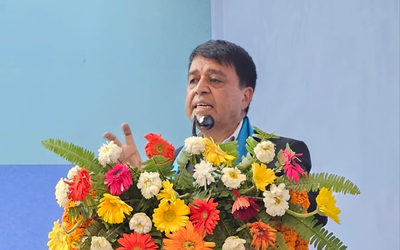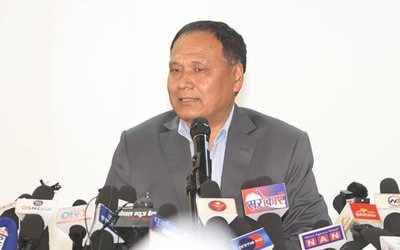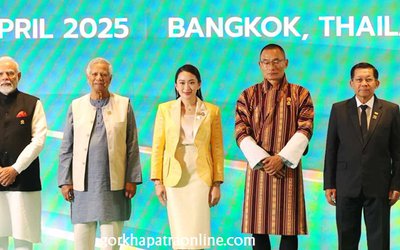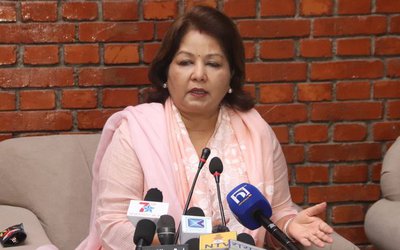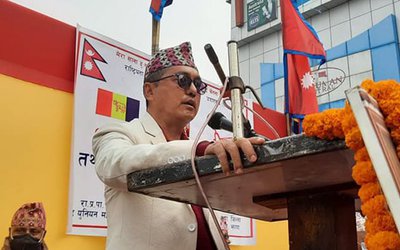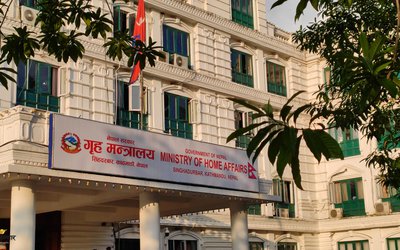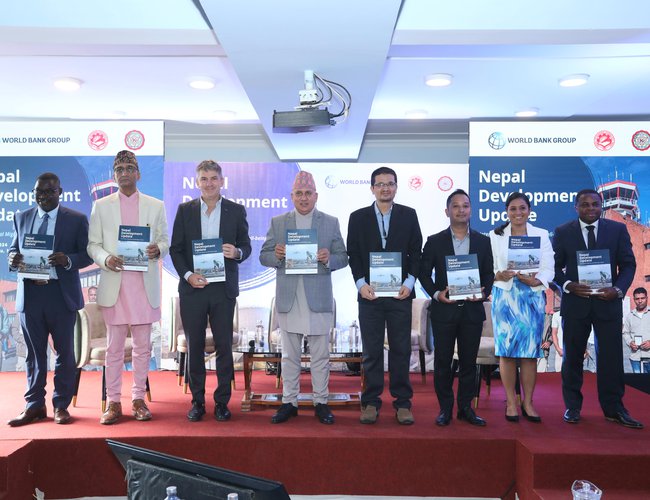
Nepal's economic growth is projected to accelerate to 5.1 percent in FY25 from 3.9 percent in FY24, driven by anticipated high tourist arrivals, along with increased hydropower and paddy production, according to the World Bank’s latest economic update, Nepal Development Update: International Migration and Well-being in Nepal, released today.
The private sector is expected to contribute to the country’s growth, as it is anticipated to benefit from the central bank’s loosening of monetary policy and easing of regulatory requirements. Nepal’s economy is projected to grow by 5.5 percent in FY26.
However, the report identifies multiple risks to the outlook, including heightened vulnerabilities in the financial system such as a rise in non-performing loans that may limit private sector credit growth, potential policy discontinuity that could deter investment, delays in the execution of the capital spending budget affecting infrastructure development, and regional instability and trade disruptions that could reduce tourism and domestic demand.
"Nepal's economy is on a gradual recovery path," said Honorable Vice Chairman of the National Planning Commission Professor Dr. Shiva Raj Adhikari. "Our focus on enhancing capital expenditure, particularly by completing nearly finished projects, along with reforms in the budgetary process, will strengthen macroeconomic stability, boost domestic productivity, and create more jobs."
Shocks in migrant-receiving countries such as the Gulf Cooperation Council countries and Malaysia, could also slow growth, impacting international remittances that are crucial for raising household consumption, reducing poverty, and developing human capital. However, migration from Nepal is costly, opportunities are unequal, and the process remains challenging for many. The report presents the latest evidence on the benefits and costs of Nepal’s emigration trend and highlights key policy interventions needed to build an inclusive migration management system aimed at ensuring sustainability and maximizing rewards.
“Maintaining growth momentum is key to Nepal’s development. This requires continued reform in critical areas such as infrastructure, governance human capital development, and developing an environment which encourages and supports the private sector,” said David Sislen, World Bank Country Director for Maldives, Nepal, and Sri Lanka. “Nepal has greatly benefited from remittances from overseas workers and improving the management of these inflows, better supporting Nepalis who choose to seek work abroad, and also building a vibrant domestic economy which allows for skilled Nepalis to be productive in Nepal is critical to the future of the country.”
An inclusive migration management system would establish a transparent recruitment process, better prepare migrants to go abroad, ensure the safety and mobility of migrants in those labor markets, plan for long-term skills and destination diversification, and create an economic environment conducive to harnessing the capital and skills of returnees.
The Nepal Development Update, produced biannually, provides an in-depth analysis of significant economic developments over the past year, contextualizing them within a longer-term and global perspective.
- Invest Small Portion Of your earnings in Nepal, we will create an environment that will yield returns: Chairman Dhakal
- Apr 20, 2025
- RPP Leaders Demonstrated Inside Singhadurbar , Linden Arrested
- Apr 20, 2025
- Foreign Minister Dr. Deuba to head to Bangkok to chair UN Meeting
- Apr 20, 2025
- We Do, What We Say, The Government Will Not Be Afraid: RPP Leader Lingden
- Apr 20, 2025
- Home Ministry warns RPP: Action will be taken if it violates prohibited Areas
- Apr 20, 2025
